Data-Driven Advocacy Workshop in Central Java
Semarang, September 29 - October 1, 2023
Trade unions are entrusted with the primary mandate of advocating for, protecting, and defending the interests and well-being of workers and their families. One way to realise this mission is through advocacy—changing policies/rules and working conditions deemed disadvantageous to workers. The Makin Terang program strives to strengthen the ongoing advocacy efforts of trade unions by incorporating data-driven advocacy, using objective data and evidence as the foundation for advocacy.
With this spirit, the Data-Driven Advocacy Workshop was conducted for factory-level union leaders affiliated with SPN, TSK SPSI, and Garteks on September 29-30 - October 1, 2023, in Semarang, Central Java. The 26 participants, representing garment, textile, and footwear factories, were respondents to the DecentWorkCheck Survey in 2022. They were guided to develop advocacy steps based on the working conditions in their respective factories, as reflected in the survey results.
Day One: September 29, 2023
The first day of the workshop commenced with the introduction of the Makin Terang program by Andina Ramadhani from Gajimu, participant introductions, and agreement on the ground rules for the activities. The session continued with a discussion on "Genuine Trade Unions" facilitated by Biko from TURC. 'True' unions are those characterised by independence, democracy, sustainability, and being established and run by and for the workers.
Trade unions have not only the ability to create rules that favour the interests of the working class at the factory level but also national labour laws. They play a balancing role in the unequal relationship between workers and employers. In the discussion session, participants shared insights into members' awareness regarding union dues payments, often called COS (Check Off System). Awareness of dues payment also helps members feel a sense of ownership of the organisation, providing concrete support for collective union struggles.
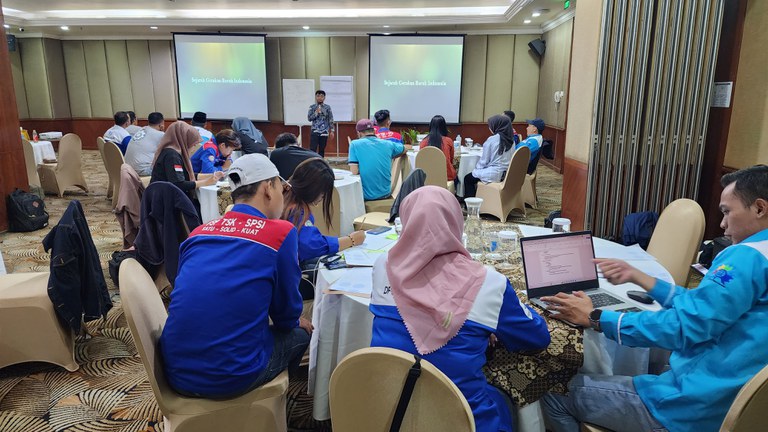
In the next session, Ichsan from TURC guided participants in discussing collective bargaining, interpreted broadly and historically. Historically, collective bargaining has occurred before legal instruments in the form of legislation or international conventions. Therefore, the absence of legal rules in collective bargaining or CBA negotiations should not be a problem. In its various forms, collective bargaining can be a platform for advocating the issues present in the company.
During the discussion, participants raised crucial questions about CBAs: Can several trade unions agree on the same CBA for multiple companies? In practice, Ichsan from TURC answered that CBAs could be applied in a region, such as the case of Nikomas Gemilang and the CBA of PT IMIP Morowali.
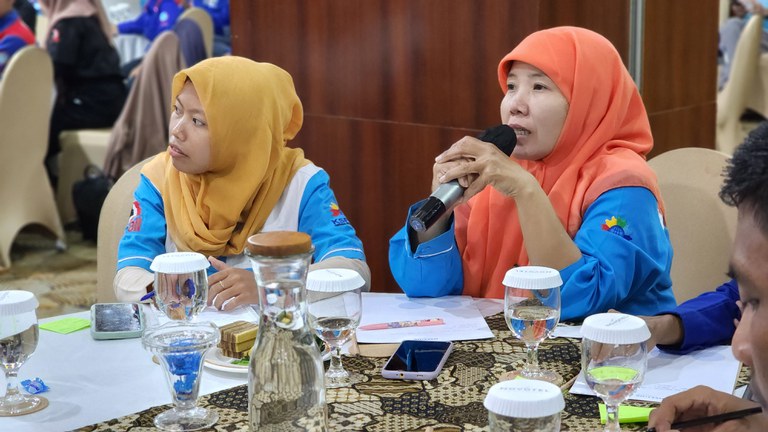
Closing the first day, Tuti from LBH Semarang emphasised the importance of using data in advocacy. Tuti encouraged participants to recognise the difference between data and information, the types of data, and the stages and strategies of advocacy. She also shared LBH Semarang's experience in practising data-driven advocacy.
A participant shared their experience advocating for a workplace accident involving a union member. Their advocacy journey started with gathering information, interviewing victims and witnesses, securing evidence, and accompanying victims to obtain JKK BPJS (incident insurance) until recovery. Through discussions in this session, participants were expected to gain sufficient knowledge to advocate labour-related topics that their companies may not comply with.
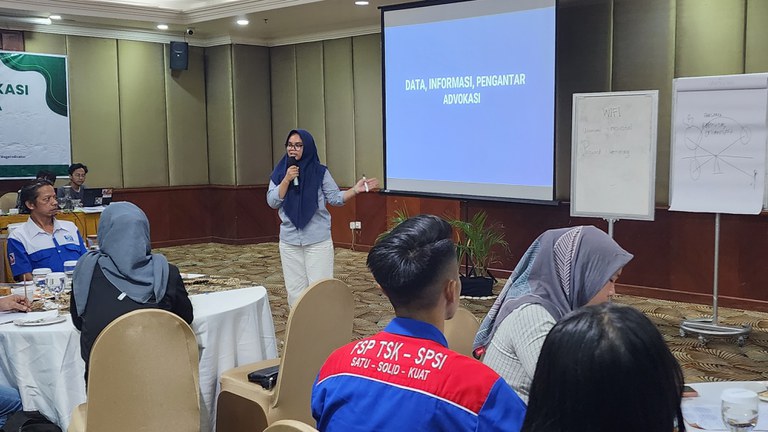
Day Two: June 10, 2023
After participants reviewed the material from the first day, Fakhri from Gajimu facilitated a session introducing the Gajimu website and the DecentWorkCheck survey data, which would be used as a reference in advocacy. In this session, participants were guided to explore the Gajimu website, which contains labour law Q&A, wage checks, and information on garment factories. During this session, participants engaged in a simulation to check the results of the DecentWorkCheck survey available on the factory information page.
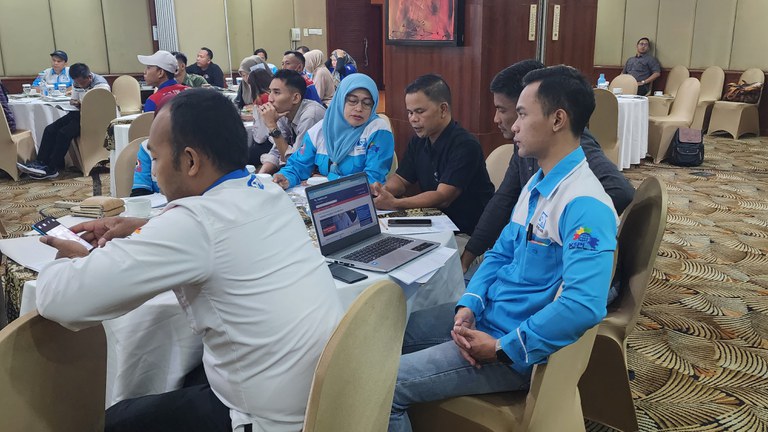
Building on the previous session, Lydia from Gajimu invited participants to read visual data on the Gajimu Garment website. Participants were taken on a virtual tour to discover visual data results from the DecentWorkCheck survey and bipartite reports per factory. The visual data was presented in more detail, including various options, such as data based on union organisations, respondent gender, non-compliance with labour regulations, and topics frequently discussed in bipartite negotiations. Additionally, participants could monitor the results of the WorkersPriorityPoll presented on the website.
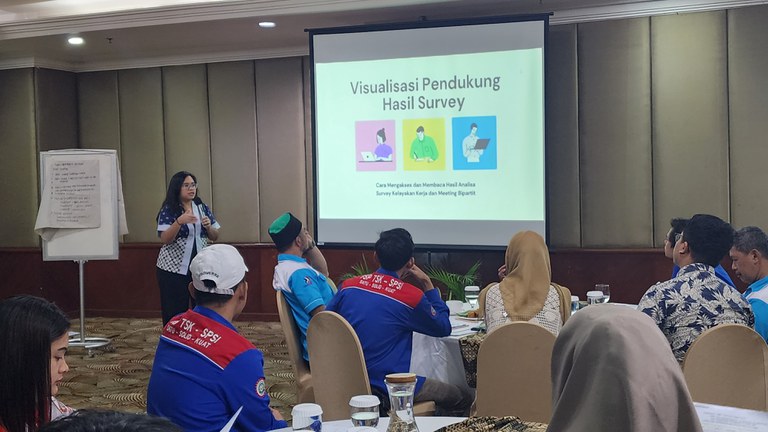
In the next session, Venda from TURC introduced the workshop as a tool for mapping working conditions and planning advocacy strategies for issues in each group of companies. After understanding its usage, participants engaged in group discussions to map problematic working conditions in their factories. They then determined the most urgent advocacy work plan to be undertaken by their respective trade unions. During the discussion, facilitators accompanied participants, including program interviewers represented by Budi Triandiyanto and Satya Utama, and the Makin Terang program team from Gajimu and TURC.
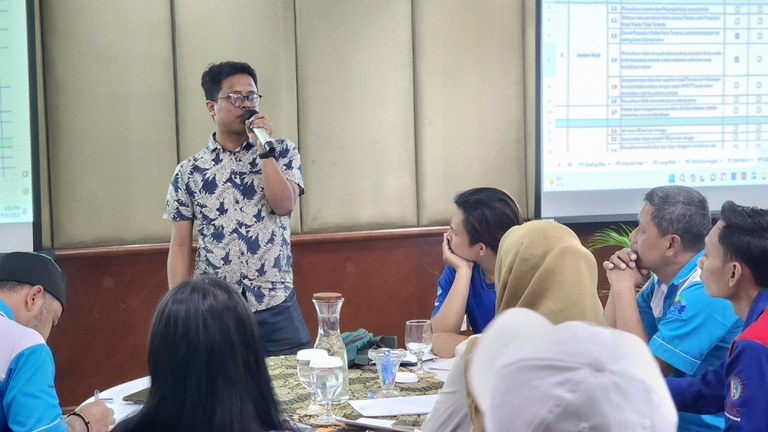
Day Three: June 11, 2023
On the third and final day, participants presented the results of group discussions on mapping and developing advocacy work plans for each factory. Most chose advocacy plans that push for supportive workplace facilities, such as clinics, lactation rooms, etc. Participants provided feedback and suggestions for each other's advocacy plans in this session. All advocacy plans and their implementation schedules became post-workshop follow-up plans. This serves as a collective commitment and an effort to monitor the progress of trade union advocacy actions in each factory.
After the follow-up plans formulation, the workshop was concluded by Ichsan from TURC with a summary of the workshop, a test to measure participants' understanding of the presented material, feedback for the improvement of future workshops, and a group photo.
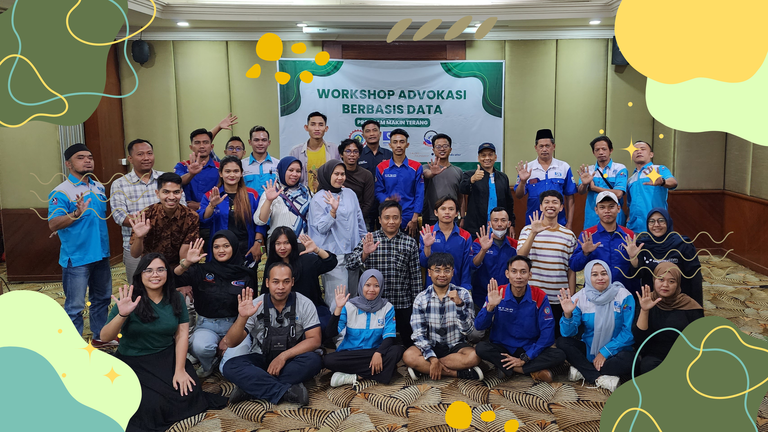
Read also:
FAQ Data-Driven Advocacy Workshop
FAQ Collective Bargaining Agreement Workshop
FAQ Makin Terang Programme
CBA Workshop in Banten 2023
CBA Workers in Cirebon 2023
Data-Driven Advocacy Workshop in West Java 2023
Interviewer Workshop 2023
